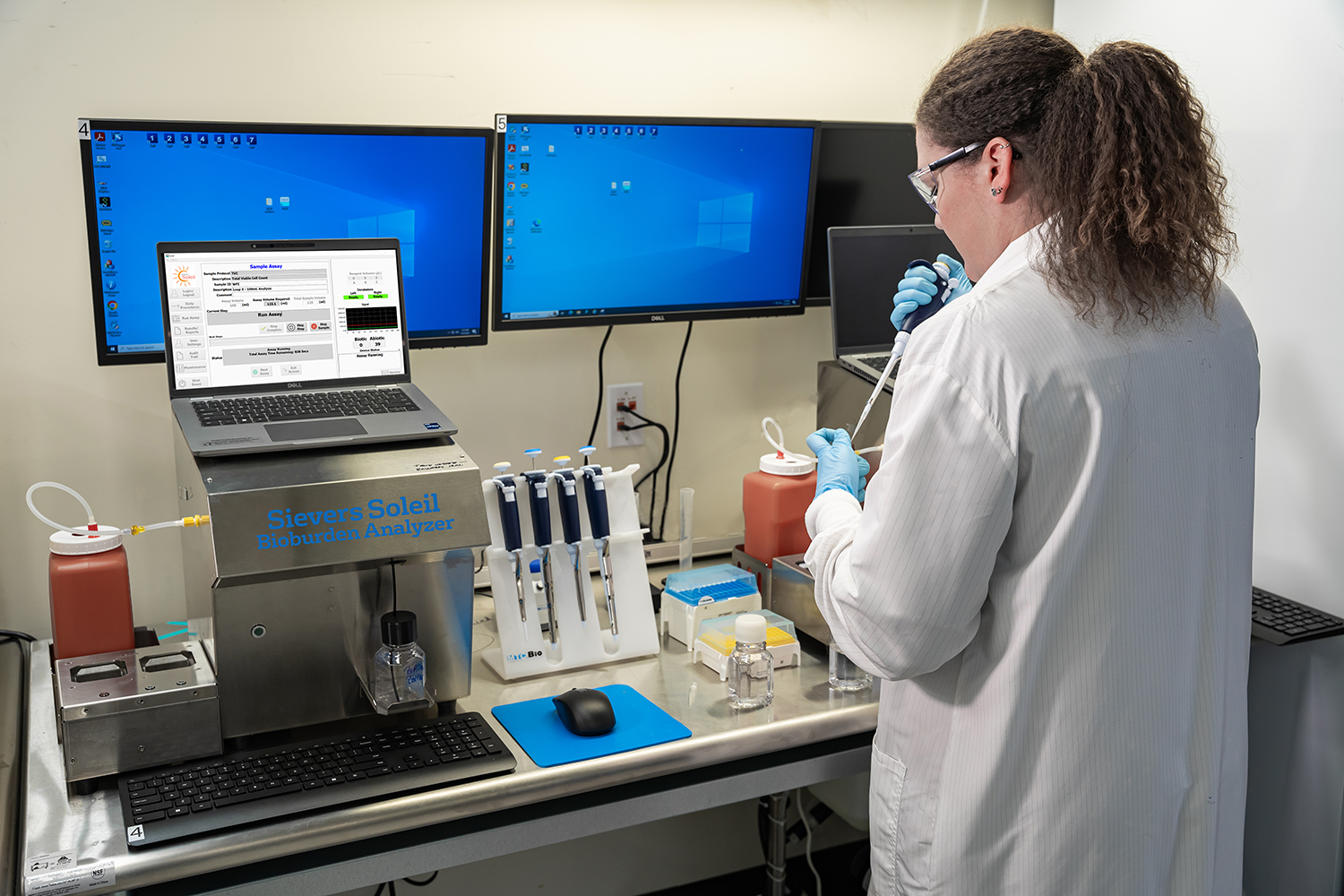Bioburden Testing: Traditional vs Modern
Qu'est-ce que la charge biologique ?
Bioburden is a measurement that refers to the total number of viable microorganisms, including bacteria and fungi, present in or on products, materials, or objects. It's particularly crucial in pharmaceuticals, medical devices, raw materials, and cosmetics, since these industries must adhere to strict acceptable limits set by regulatory agencies.
Monitoring bioburden is vital. Microbial contamination can lead to risks such as compromised product efficacy, costly product recalls, and most importantly, potential health hazards for consumers. Bioburden levels are a key indicator of manufacturing process quality. They are influenced by various factors including the manufacturing environment and equipment cleanliness and condition.
How do you test for bioburden?
Bioburden testing has traditionally relied on cultivation methods that measure Total Viable Count (TVC), combining Total Microbial Count (TMC) and Total Yeast and Mold Count (TYMC), and are reported in Colony Forming Units (CFU/mL or CFU/gram). Traditional approaches include membrane filtration, direct plating (pour plate and spread plate), and Most Probable Number (MPN).
Dating back to 1905, these traditional methods provide acceptable accuracy, but their long wait times (2-7 days) make them ineffective for real-time process monitoring and timely product release. This creates a significant gap between testing and actionable results, leading to retrospective, rather than proactive, process controls.
Rapid Microbial Methods (RMMs) offer a modern solution to this gap, delivering results in hours - or even less than an hour with specific RMMs - rather than the days required by traditional methods. While not all RMMs are created equal, certain rapid microbial detection technologies correlate well with traditional plate counts, making them an ideal choice for manufacturers seeking both speed and reliability. By maintaining the accuracy technicians are accustomed to while dramatically reducing wait times, these select RMMs not only accelerate the testing process but also enhance overall operational efficiency.
With near real-time data for monitoring ultrapure water and manufacturing processes, RMMs deliver substantial improvements over traditional bioburden testing, including significant time-savings for quality control labs, faster product release cycles, reduced operational costs, and enhanced overall productivity.
The combination of speed and accuracy makes switching to RMMs suitable for both laboratory and at-line applications, offering life sciences customers a way to modernize their bioburden testing without sacrificing reliability.
How fast are rapid microbial methods?
Rapid Microbial Methods (RMMs) deliver results in hours rather than days, with speeds varying by technology. Many RMMs provide results within 8 hours, while advanced systems can deliver data in under 45 minutes - compared to traditional methods that require 2-7 days.
The fastest RMM technologies, such as flow cytometry-based systems, enable precise analysis of single cells, offering near real-time results, and in certain cases, distinguishing between viable cells and abiotic particles. This represents a dramatic improvement over traditional plate-counting methods, enabling same-day decision-making instead of multi-day waiting periods for product release and quality control decisions.
What are the benefits of modern bioburden testing methods / rapid microbial methods (RMMs)?
- Speed and Efficiency
- Dramatically Faster Results - Obtain bioburden data in under 45 minutes with certain RMMs, compared to 2-7 days with traditional methods
- Near Real-Time Monitoring - Enable immediate decision-making with actionable results using RMMs that correlate to conventional plate counts
- Faster Product Release - Reduce the time products are held up waiting for test results
- Operational Improvements and Cost Savings
- Enhanced Lab Efficiency - Automated systems reduce manual plate counting, minimizing human error
- Improved Decision-Making - Make fast, confident decisions about manufacturing processes to reduce risk
- Remove Testing Bottlenecks - Eliminate the bioburden testing bottleneck that delays product release
- Significant Cost Savings - Reduce costly waste from process inefficiencies or discarded products
- Risk Management and Quality Control
- Better Risk Management - Make faster decisions to prevent contamination issues and reduce manufacturing risks
- Enhanced Data Integrity - Certain RMMs can provide electronic records that are easily retrievable and tamper-proof, reducing transcription errors while offering comprehensive audit trails for accuracy and regulatory compliance
- Comprehensive Monitoring - Monitor critical control points in your water system with faster, automated testing that provides real-time contamination detection

Utilizing RMMs with the Sievers Soleil
The Sievers Soleil Rapid Bioburden Analyzer is a transformative rapid microbial detection system for bioburden testing in pharmaceutical manufacturing. It works by combining high-throughput flow cytometry with proprietary viability stains to provide bioburden results in near real-time that correlate with plate counts. Operating at 8 mL/min (significantly faster than traditional flow cytometry's μL/min), the analyzer delivers results in under 45 minutes with sensitivity below 10 viable cells/100 mL, compared to conventional methods that require 2-7 days. The system uses sophisticated algorithms to accurately distinguish between living and non-living particles, enabling pharmaceutical manufacturers to transition from retrospective to proactive process controls. This facilitates same-day actions to minimize production delays and costly operational shutdowns while improving overall risk management strategies.
Think the Sievers Soleil Rapid Bioburden Analyzer might be a good fit for your lab? Learn more about it here:
Read more: Implementing Rapid Micro Methods (RMMs) Throughout Production
Download now: Sievers Soleil Rapid Bioburden Analyzer Infographic
